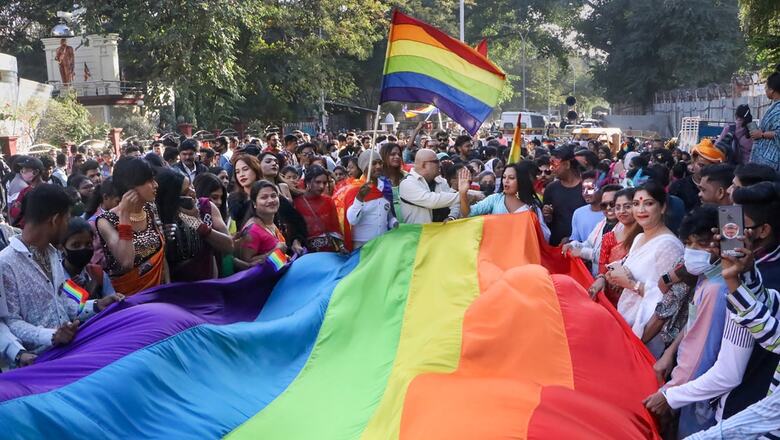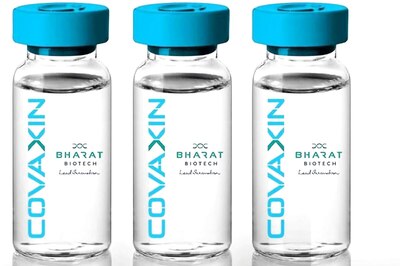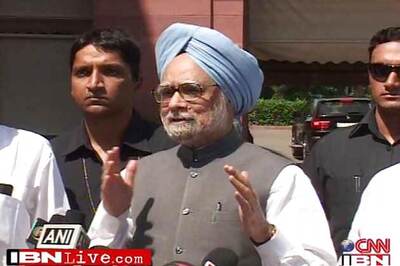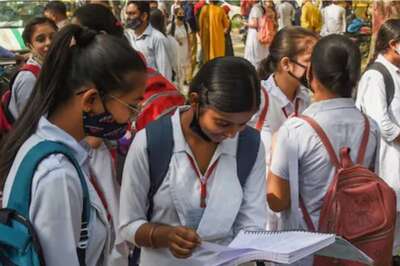
views
On Saturday morning, an alarming video surfaced online, exposing doctors engaged in the illegal and harmful practice of conversion therapy on LGBTQ+ people in India. The undercover investigation was uncovered by a British journalist who spoke with doctors in New Delhi, selling a ‘Gay cure’ and benefiting from the despair of LGBTQ+ people. The video sheds light on the plight of queer individuals subjected to such harmful practices, highlighting the urgent need for comprehensive measures like the ones taken by the National Medical Commission (NMC) last year.
Last year, the NMC wrote to all State Medical Councils, banning conversion therapy and calling it “professional misconduct.” This decision came in response to an order passed by the Madras High Court in Arunkumar and Anr Vs The Inspector General of Registration and Ors case in 2019, which categorised conversion therapy as an unethical practice under the Indian Medical Council (Professional Conduct, Etiquettes and Ethics) Regulation, 2002. The NMC has also empowered all State Medical Councils to take necessary action against any medical professionals violating these guidelines.
Conversion therapy targeting the LGBTQ+ community is based on altering an individual’s sexual orientation or gender identity to conform to compulsory cis-heterosexuality. The LGBTQ+ community in India is indeed incredibly diverse, encompassing individuals from different castes, ethnicities and socioeconomic backgrounds. However, the intersection of caste and sexual identities could also add another layer of complexity to the challenges faced by queer individuals. For queer individuals belonging to a lower caste, their experiences can be uniquely impacted by the prejudices and inequalities associated with their caste status.
However, despite this diversity, these individuals face common challenges. These challenges span from discrimination and stigma, lack of legal protection, bullying, healthcare disparities, hate crimes, and family rejections after coming out. It remains unclear whether individuals willingly seek conversion therapy or are forced into it by their families. While some may decide to undergo such therapy voluntarily, there have been reports where queer individuals are pressured or forced to undergo conversion therapy by their families. It is essential to consider that India’s culture strongly emphasises family unity and honour, significantly influencing the role of family and society in one’s life. Queer individuals could often feel the need to ‘fit in’ and be forced to adhere to religious and sociocultural values to maintain family ties.
Over the last few years, the LGBTQ+ community in India has gained very little, even after the Supreme Court ruling in Navtej Singh Johar Vs Union of India case in 2018 that decriminalised consensual homosexual conduct. Despite the amendment, much work remains to be done in establishing comprehensive legal protections and transforming societal attitudes to ensure equality and inclusion, irrespective of sexual orientation or gender identity. The LGBTQ+ community in India continues to face challenges with respect to their freedom and equal rights, particularly evident during the recent same-sex marriage proceedings in the Supreme Court earlier this year. The government’s strong opposition during these proceedings displays the LGBTQ+ community’s significant hurdles in pursuing legal recognition and equality. Even if the court passes favourable judgement and establishes legal rights, achieving societal acceptance and understanding of diverse sexual orientations would remain challenging. The legal victories may mark significant progress, but as witnessed after the 2018 judgement, these pronouncements and recognition do not automatically translate into immediate and widespread societal acceptance.
The video has brought this issue to the forefront. Despite the ban on conversion therapy in India, the video highlighted the grim truth of the continued use of such unethical practices. The video shows doctors allegedly administering Ayurveda medicines purporting to treat homosexuality. These pills are being promoted as safe and government-approved, promising guaranteed results in just a few months. It is crucial to recognise that fostering false promises of curing homosexuality further perpetuates stigma, prejudice, and discrimination, leading to severe mental and emotional distress. It poses increased mental health risks such as depression, anxiety, substance use, social withdrawal, loss of self-esteem and even suicidality. The video fuels the growing demand for policies to address these grave issues.
The journey towards social acceptance, accessible health care, equal rights, and protection requires addressing deeply ingrained biases, prejudices, and cultural norms. While courts can play a pivotal role in setting legal precedents, a multifaceted approach is necessary to change societal attitudes from various stakeholders. For example, in this case, implementing stricter enforcement of the existing ban on conversion therapy is imperative to hold these doctors accountable. The public, medical professionals and families must also be aware of conversion therapy’s dangers through extensive awareness campaigns.
Furthermore, the LGBTQ+ community’s rights and dignity must be upheld by government agencies through the development and implementation of policies. This entails implementing guidelines that denounce conversion therapy, advocate for affirmative mental health care, and provide accessible resources to anyone needing assistance.
Indian educational institutions can also play a significant role in fostering understanding and empathy towards queer individuals. A US study, conducted in 2019, by The Gay, Lesbian, and Straight Education Network (GLEN) highlighted that creating a supportive environment and implementing an inclusive curriculum can lead to improved education outcomes for all students. In the context of India, social transition, including adopting an inclusive curriculum by educational institutions, can also positively influence the mental health and well-being of LGBTQ+ students.
Media could also be crucial in shaping public perception, norms, and attitudes. Through inclusive representations, the media can significantly influence how the public perceives marginalised communities, including queer individuals. There have been efforts in recent years to improve the portrayal of the LGBTQ+ community in Indian media. For instance, the web series ‘Made in Heaven’ (2019) sensitively address the issues of same-sex relationships, societal stigma, and the complexities of coming out in India.
The healthcare need of queer individuals should be given paramount importance to ensure equitable and better health. In a National Legal Services Authority (NLSA) report, 27 per cent of transgender people in India have reported being denied healthcare, solely based on their gender identity. This discrimination highlights the need to train healthcare professionals to be sensitive to the community’s unique needs and challenges.
It all starts with awareness, empathy, and willingness to engage in meaningful dialogue. Only through united efforts can we build a future where everyone can live with dignity, respect and freedom regardless of their sexual orientation or gender identity. Let the video serve as a wake-up call to all of us to take collective action and create a more accepting and equitable society for all.
Bhavya Tandon is an Assistant Professor at the Jindal Institute of Behavioural Sciences. Views expressed in the above piece are personal and solely that of the author. They do not necessarily reflect News18’s views.


















Comments
0 comment